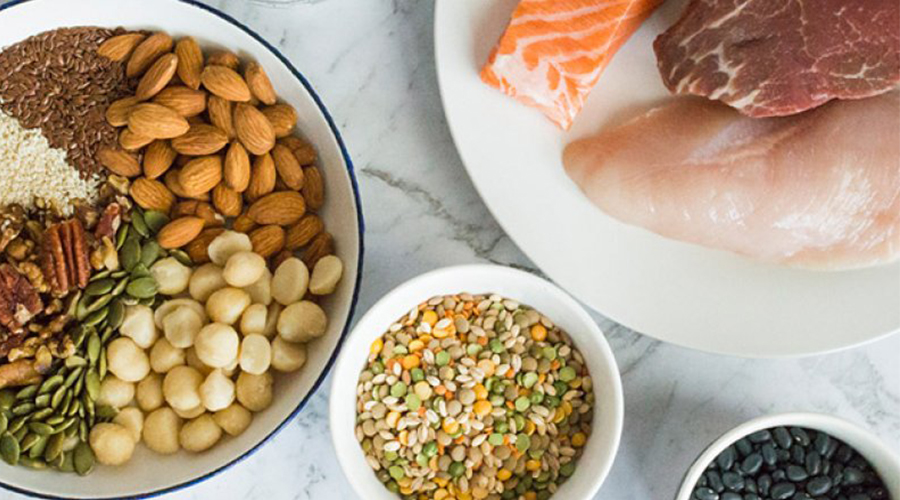
Ageing is an inevitable part of life. As we grow older, our bodies undergo a lot of changes both internally and externally. These changes become very apparent as we cross the age of 30. The feeling of gradual weakening as we age past this mark is not just our mind playing tricks on us. This is very real. Such changes happen due to a condition called sarcopenia which is a natural side effect of ageing. This can cause muscle losses of upto ¾ of a pound per year! And unless we take steps to reverse this situation, the cumulative effects could be catastrophic, especially past the age of 50. As is obvious, a well rounded diet and regular exercise to build muscle is critical in countering these consequences. But more specifically, there is a particular macronutrient which must be a part of any well rounded diet due to the several health benefits it provides and mainly because of its muscle building properties. This essential macronutrient is protein.
Dieticians in general promote the consumption of fruits and vegetables because of their richness in several micronutrients such as vitamins and minerals that the body needs. But most plant based food sources are weak when it comes to macro nutrients such as fats and most importantly proteins. Given that there are certain sources in the plant world such as legumes and lentils, most of them are not ‘complete’ sources of protein. By complete proteins we refer to proteins that are rich in all 9 essential amino acids. These amino acids are absolutely critical in the muscle building process and must be consumed from external sources as not all of them are synthesised within the body.
Several animal protein sources have a better collection of these essential amino acids. And although they are more difficult to breakdown within the body, once they are digested they can provide us with a wider range of our required amino acids. But that being said, over consumption of these animal proteins is not advisable due to their relatively complex structures, especially for elderly people with digestive issues and slow metabolism,. This is why a diet that has a balanced collection of both animal and plant based nutritional sources would generate the best results.
For individuals who are purely vegetarian, building muscle could prove to be an arduous task. This is because, as discussed earlier, most plant based protein sources are not complete and the ratio of protein they contain per gram is also not anywhere close to an animal based protein source. In general, individuals are advised to consume about 0.8 grams of protein per kg of bodyweight. This number is even higher for people with sarcopenia due to their detrimental nature of their muscles overtime. For such individuals a daily intake of about 1.5 grams of protein per kg of bodyweight would prove to be highly beneficial. To achieve this daily target of protein consumption, individuals can consume foods like legumes, greek yogurt, eggs, wild salmon and poultry. You can also eat meats like beef and lamb, dairy products such as cottage cheese, and supplements such as whey protein for proper protein intake.
When we workout we basically create minute microtears within our muscles. But when protein is supplied to these muscles, they heal and eventually grow stronger. This is why protein is considered the basic building block for all muscles. Couple this with a challenging workout regimen and a holistic diet plan that includes all necessary nutrients, and you will have the perfect formula for success!
